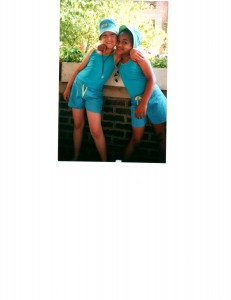Today in class we watched this film in class called 10 dollars and hour. The film made me want to change my whole blog posted that I recently started on to discuss this film. The film had me really bugging out in class because of some of the things that was stayed in the film. If you missed class today you missed a great Film. The movie was a documentary about black cooks working in the frat house at a college in Mississippi. The film was mostly about this woman that was black and was one of the cooks but she was cooking for a white frat and her bosses were white also. She stated in the film how she love one of the student that he was her baby. They told the white student what she said and his respond back was I guess she have respect for me. What!! Really!! respect for you, you should respect her. She is the eldest you supposed to show her respect. Another thing that got me about the movie was the mother dean or whatever her name was basically the manager over the cooks. They were interviewing her about the 25 cent raise they would give the cooks after two semesters. She going to say the raise is based on how they act, if they deserve the raise, depending on how her and the cooks get alone and their attitude because attitude is a important factor. The whole time I’m thinking what you mean if they deserve it and depending on how well yall get alone. What does any of that have to do with them getting a raise or not. I did not know that you had to brown nose or kiss up to someone to get a raise. The raise should be based on your work performance not if you like a person or not. This is a job not a place to make friendships. Also another part of the movie that shocked me was the income of the cooks and the income of the manager. The manager was making 30,000 dollar a year plus free gas for her truck, free housing and health benefits. The cooks was making almost 15,000 dollars a year with no benefits but they are doing all the work. Why do the manager deserve 30,000 plus benefits and all she is doing is sitting on her butt doing nothing but the people that are bussing their butt barely making any money. That is wrong in all kind of ways. After watching this movie it really surprised me that stuff like this is still going on that people are still taking down on people and treating them inferior. Especially since the manager going to say the frat love the cooks just like you would love a maid in your house. I couldn’t take it anymore after she said that. This is really ashamed but overall the documentary is most see if you didn’t come to class I recommend people to look the film up.

